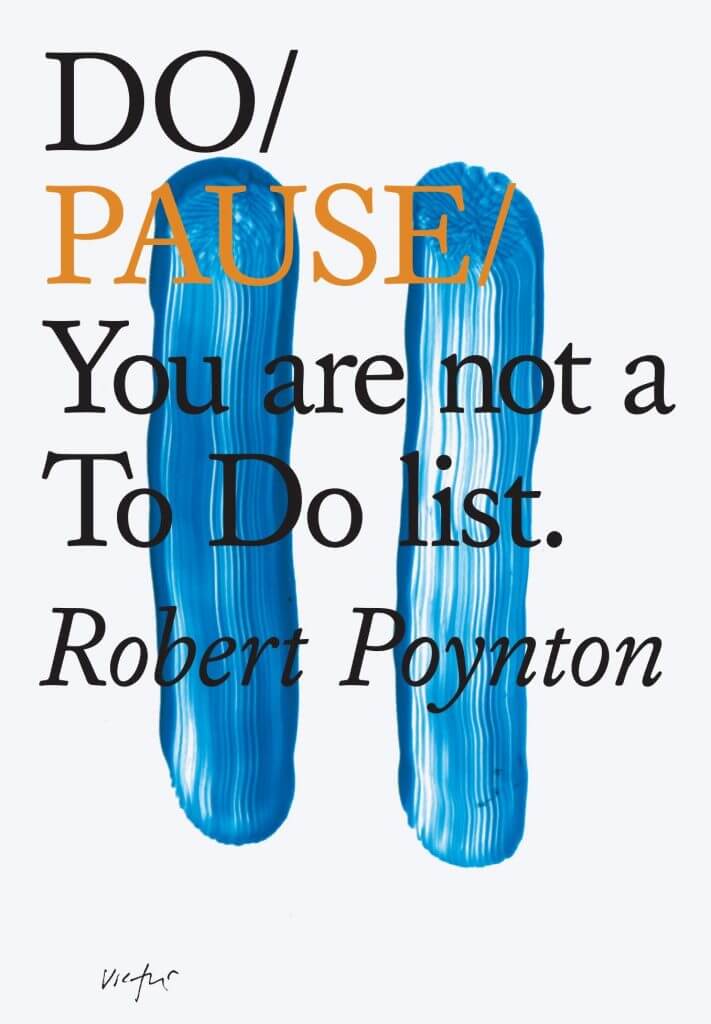What will you do with your limited time.
Nearly 1,000 posts ago, my very first daily post was: “Life is Wild and Precious, Be Present“, musing on presence, purpose, with one of the anchors being a Mary Oliver poem that ends with the question:
Tell me, what is it you plan to do with your one wild and precious life?
This blog is about leadership. That start with self-leadership and self-awareness. To know ourselves, we need to pause, to stop the busy-ness, quiet the mind and more.
As we continue on this pandemic journey both very real and so surreal, I hope you can make time for yourself to truly pause.
In support of that wish, today I curate for you a piece written by the master of pause, Rob Poynton. I encourage you to take time to read it, slowly and thoughtfully, to then use it for your own time to pause and reflect.
For a limited time only
I am sitting in St. Sepulchre’s Graveyard. As I wandered in, looking for a place to settle, I paused here and there, to read some of the words people chose to carve in stone, and remember their loved ones by.
More often than not, they dwell on character, not achievement. ‘A good son, a good brother, a good friend’; “upright and just”; “sincere and true”; or “loving and kind in all his ways”.
This place reminds me (like the Howies T shirt) that our time is limited. Which is, as the Spanish say, ‘a truth like a temple’. Yet in everyday life we find it remarkably easy to forget, ignore, or dismiss that truth.
Or we reduce the question of what to do with our limited time, to a simpler one, which is easier to address. This can happen invisibly, and we find ourselves living our lives in response to quite a different question – ‘how can I get more done’?
I don’t deny the importance of getting things done. The satisfaction of creating, making, building and achieving things matters to me (just ask my wife). It can be both delicious and enchanting. But it is not all there is, or all we are.
The German writer Stefan Klein has a lovely way of speaking about this. He says: ‘by giving more life to our time, we give more time to our life’. I like this. It invites me to consider what ‘giving more life to our time’ might look like?
I wonder what it might mean to you?
For me it is about getting more out, not squeezing more in.
Though I didn’t plan it, this is a living example. To sit here in the shade of a Sunday afternoon, propped up on the trunk of a massive beech, listening to birdsong, exchanging a few words with a curious passer by, is giving more life to this time.
It wasn’t my intention to come here, I was heading somewhere else. I could have walked on by. But I didn’t. Just a moment’s pause was enough for me to to notice the entrance, remember the graveyard and take a little turn.
So I wandered in. Through the stone arch, this space was waiting for me. I have no sense of how long I have been here. I could check, but I don’t care to. Time has expanded, deepened, and come alive for me here in the most delightful way. It is not a spell I wish to break.
There are layers to this. I am enjoying the peace and beauty here and now, but I also know I will remember this. I am laying down a memory that one day I will relish – of lazy lockdown afternoons, spent musing like a poet in a graveyard. Today is not just another coronavirus ‘Groundhog Day’.
And as if all that were not enough, I smile, as I realise that being here is also helping me to create this piece. The irony of it. I am getting stuff done.
How often are we heading off somewhere else, not for any particular reason, but just because we said we would? How often might we give more life to our time, by allowing ourselves to pause? Effectively, giving more time to our life and sometimes, like today, even helping us to get stuff done.
This is what I mean when I write about pause as a portal. There are stone arches littered throughout our lives. They won’t always lead to such a magical space as this. And we can’t go through them all. But if we never stop, if we never develop the skill or the sensitivity to notice when we might need them, if we are always racing ahead, eager to get on to somewhere else, how we will ever know what might lie, close at hand and full of life, just waiting for us to arrive?

